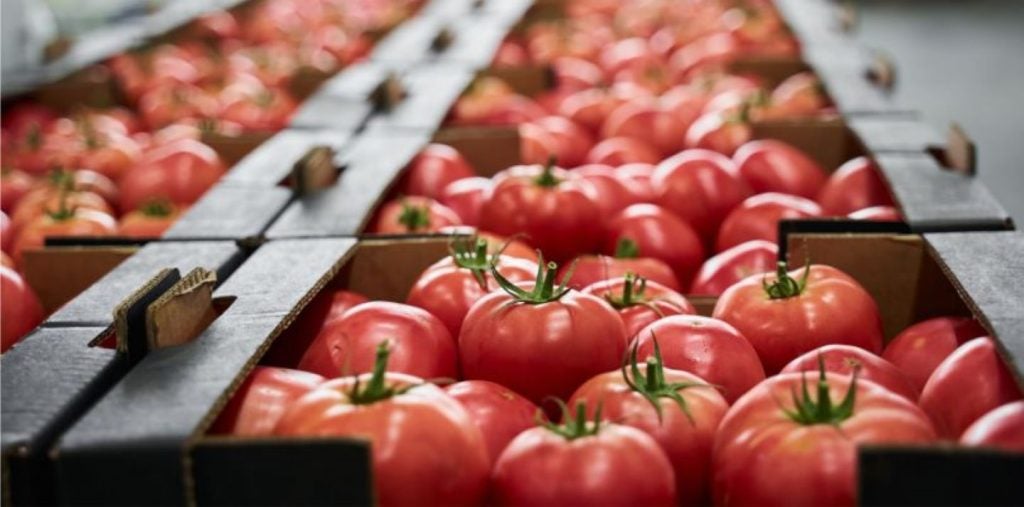A UK body representing farmers and farm businesses has issued a new warning to the country’s government about the need for agri-food self-sufficiency in the light of global threats.
The National Farmers’ Union (NFU) has called on the newly-elected Labour government to increase the nation’s self-sufficiency levels.
Referring to today (14 August) as ‘self-sufficiency day’, it said this would be the day the “national larder” would run empty if UK consumers only ate food produced domestically from 1 January.
According to government figures, the UK is 62% self-sufficient in food but the NFU said some sectors have seen a recent decline. It said the UK’s self-sufficiency in fresh vegetables is at its lowest since records began in 1988 at 53%.
NFU president Tom Bradshaw said: “Food from other countries will always form a proportion of our daily diets, but we must recognise the vulnerability of global food supply chains and the importance of a stable food supply here at home to our nation’s health, as well as its vital contribution to our economy.
“Farmers produce the raw ingredients that underpin our food and drink sector, the largest manufacturing sector in the UK, worth £146bn ($187.5bn) and employing more than four million people.
“That is why investment in Britain’s farming sector is so important, so where we can increase self-sufficiency in homegrown foods, we do.”
The NFU points out that this year farmers and growers have also experienced one of the wettest winters and springs on record which has put “untold pressure” on food production.
At the same time, record-breaking global temperatures have impacted key exporting countries across the world. Imports make up 84% of fresh tomatoes on sale in the UK, yet tomato imports from Spain and Morocco fell by 17% in February 2023 compared to the five-year average.
In the same time period, imports of lettuce varieties fell by more than 36%, contributing to shortages on shop shelves as UK production also fell.
The NFU said it is looking to work with the new government to put domestic food production at the centre of its missions around climate resilience, economic growth and the nation’s health.
Bradshaw added: “Central to this is an increased multi-year agriculture budget and a statutory commitment to ensure the UK’s self-sufficiency does not drop below its current level.”
Just Food asked the government’s Department for Environment, Food & Rural Affairs (Defra) for a response to the NFU’s warning.
A government spokesperson said: “This government recognises that food security is national security. That is why we will restore stability and confidence amongst the sector by introducing a new deal for farmers to boost rural economic growth and strengthen our food security alongside nature’s recovery.
“We will protect farmers from being undercut in trade deals, make the supply chain work more fairly and prevent shock rises in bills by switching on GB Energy. In addition, we will optimise our farming schemes to make sure they are delivering for food security and nature recovery.”
The spokesperson also pointed out that Defra secretary Steve Reed’s first meeting in post was with NFU president Tom Bradshaw “to outline his commitment to farmers”.
The NFU’s warning comes just a day after UK vegetable growers said crops could be adversely hit this year as post-Brexit border changes have resulted in delays to seed imports.
A report in the UK’s The Guardian newspaper quoted trade bodies representing UK tomato and pepper growers as saying new rules for seed imports from the EU are causing delays of up to six weeks for deliveries, disrupting their growing schedules and finances.
The British Tomato Growers’ Association (BTGA) said the delays were threatening yields and reducing the profitability of growers, while the Cucumber and Pepper Growers’ Association (CPGA) said the significant holdups were causing “costly crop delays” for some members.









